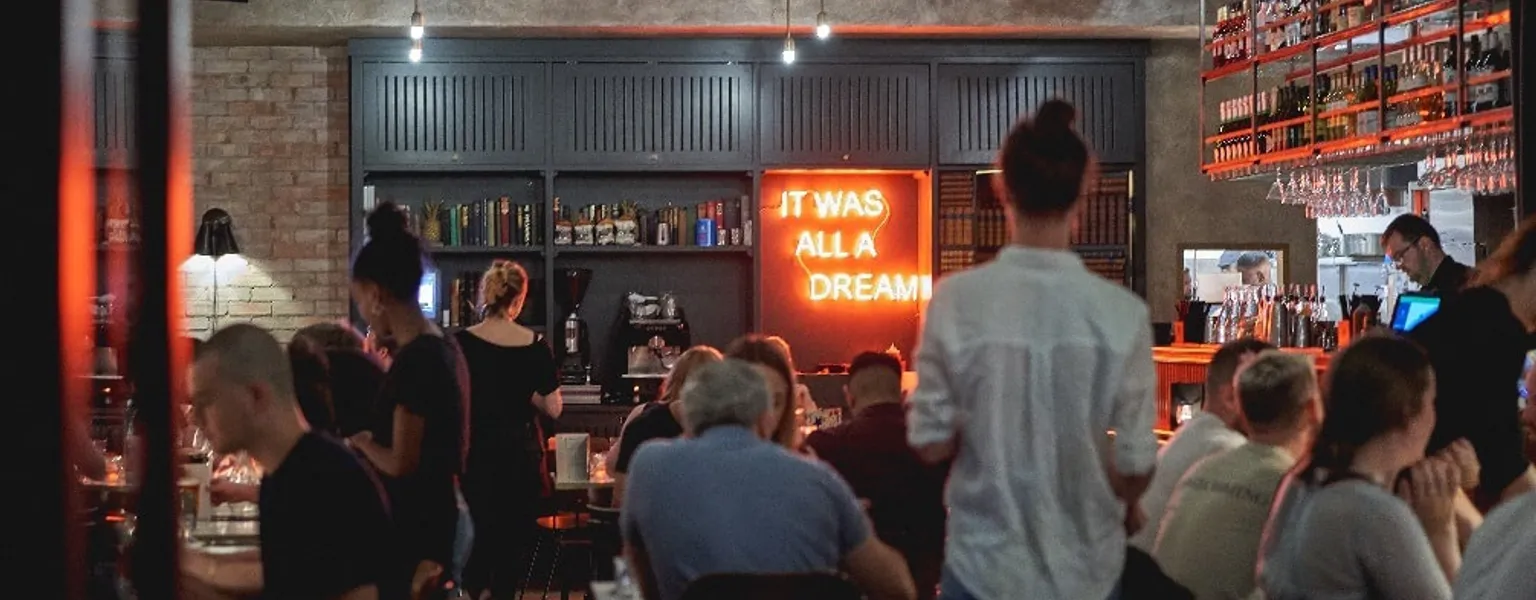How UK bars are slashing glass and plastic waste

Sustainability
Sustainability is a priority across all sectors – including after dark for the nightlife industry. Bars, pubs, and clubs traditionally produce lots of waste. However, new trends and regulations are encouraging establishments to adopt more sustainable practices.
Waste management and environmental responsibility are increasingly scrutinised within the nightlife sector. To help these venues, waste expert Mark Hall fromBusinessWaste.co.uk has shared his top tips to reduce waste across several areas, from glass to plastics and energy.
1. Glass Waste
Glass waste is one of common type of waste in bars and clubs, with empty bottles often piling up throughout a single night. One of the most effective ways to manage this waste is through a deposit return scheme (DRS), which the UK government is set to fully implement by 2025. These schemes incentivise patrons to return empty bottles to redeem the deposit. The financial incentive ensures bottles are reused or recycled rather than discarded. In the meantime, many bars use reusable drinkware or glass alternatives such as stainless steel or aluminium bottles.
Mark adds: “Another suggestion is to install on-site glass crushers. These allow venues to compact their glass waste, making it easier to recycle and reducing the number of waste collection trips required.”
2. Plastic Waste
Single-use plastics, such as straws, stirrers, and plastic cups, are some of the most visible types of waste in nightlife venues. The UK has already banned single-use plastic straws and stirrers, and many venues moved towards biodegradable alternatives made from materials like paper or bamboo.
One of the biggest challenges is cutting out single-use plastic cups and swapping them for reusable ones. Where this isn’t an option, bars should make sure plastic cup waste doesn’t mix with other types of waste and is recycled.
3. Energy Waste
Energy efficiency is an often-overlooked area of waste reduction in nightlife venues. Bars and clubs are typically energy-intensive due to lighting, sound systems, and refrigeration. UK venues can benefit from energy audits and installing LED lighting, which uses significantly less energy than traditional bulbs and lasts longer.
Smart energy management systems that automate heating, cooling, and lighting based on occupancy can reduce unnecessary energy consumption.
4. Water Waste
High water consumption is another area where nightlife venues can reduce waste. From dishwashing to restrooms, the amount of water used can be excessive if not managed properly. Installing low-flow taps and toilets can drastically reduce water usage in bathrooms, while bars can adopt practices like only washing glasses when the dishwasher is full, instead of multiple smaller loads.
Mark continues: “One great strategy that we’ve come across is rainwater harvesting systems. Some venues have installed these advanced systems that collect rainwater and later use it for toilet flushing or cleaning.”
5. Packaging Waste
Venues often receive large deliveries of alcohol, food, and other supplies, which result in substantial packaging waste. To cut down on this, pubs and bars can work with suppliers to reduce excess packaging or switch to reusable or recyclable packaging materials.
Mark suggests: “The best advice for packaging waste is one that also saves venues money – bulk purchasing. Although this doesn’t completely remove the need for packaging, it greatly reduces it. Once removed, all packaging should then be separated based on the materials and prepared for recycling.”
Related News
-
Sustainability
Bartenders trial paper-based bottle for Johnnie Walker Black Label
-
Sustainability
Diageo trials paper-based bottles for Baileys Irish Cream Liqueur
-
Sustainability
Baileys trials lightweight aluminium bottles at airports
-
Sustainability
Absolut Vodka trials eco-friendly paper bottles in Tesco stores
-
Sustainability
Closed loop spirits packaging sets sail on more cruise ships




